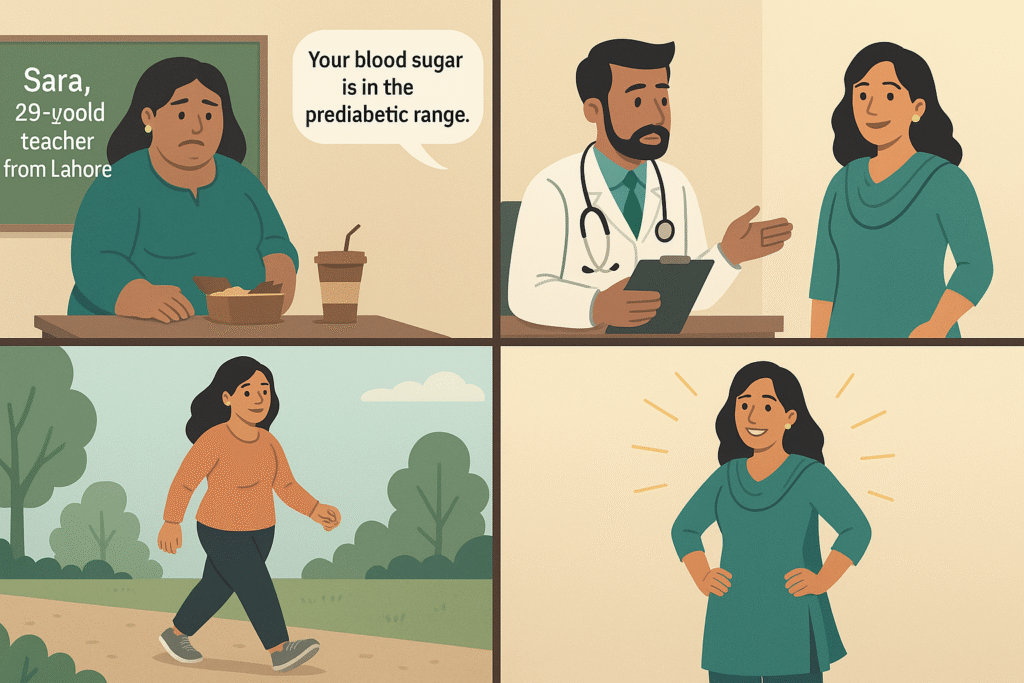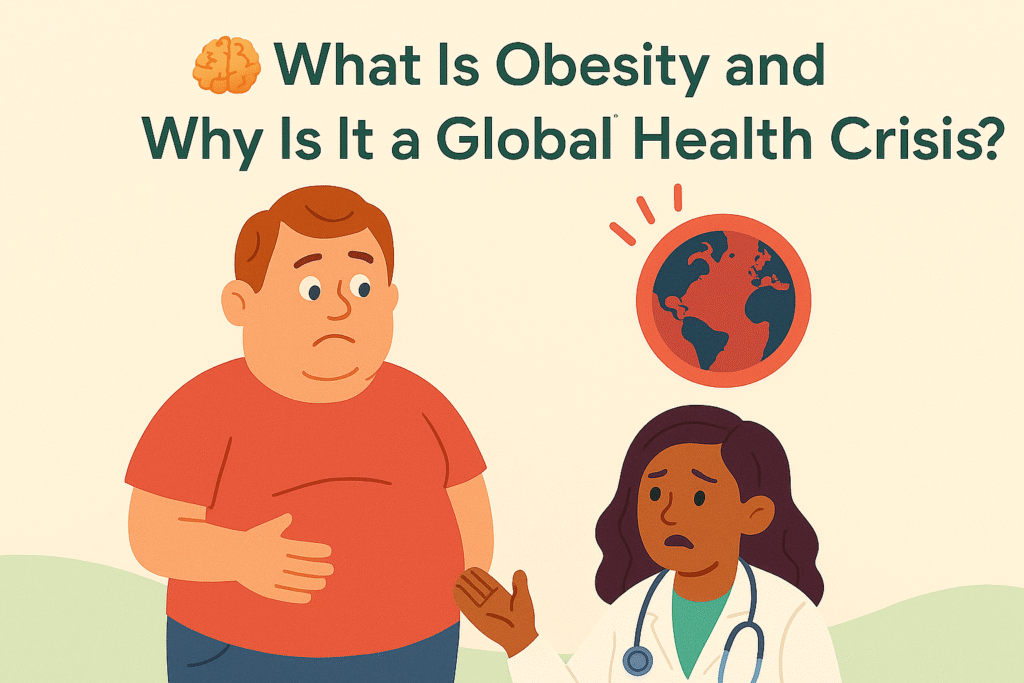“I never realized how tired I always felt until I finally started changing how I ate and moved. For years, I thought it was just stress. But my body was asking for help.”
A 32 year old office worker from Karachi
Obesity isn’t just about body size it’s about health, energy, and the quality of your life. And today, obesity is no longer a personal issue it has become a global health crisis affecting millions of people across countries, cultures, and age groups.
At Foncentra, we believe that knowledge leads to change. Let’s break down what obesity really is, why it’s rising so fast, and how it impacts us more deeply than we often realize.
📌 What Is Obesity?
Obesity is a medical condition where excess body fat accumulates to the point that it starts harming your health. It’s usually measured using the Body Mass Index (BMI) a scale that compares your height to your weight.
- A BMI of 18.5–24.9 is considered healthy
- A BMI of 25–29.9 is overweight
- A BMI of 30 or above is obese
But numbers alone don’t tell the full story. You could be physically inactive, eat ultra-processed foods daily, and still have a “normal” BMI while your body struggles on the inside.
🧃 Obesity Is Not Just About Overeating
Let’s get one thing clear: obesity is not just about eating too much.
It’s about what we eat, how we live, how we manage stress, and sometimes even our family history.
Here are some common causes of obesity:
- Consuming high-calorie, low-nutrient foods (fast food, sugary drinks, packaged snacks)
- Lack of physical activity (sitting jobs, less outdoor time)
- Hormonal or metabolic imbalances
- Poor sleep and chronic stress
- Emotional eating (using food to cope with anxiety or sadness)
- Genetics (family history can increase your risk)
In short, obesity is multi-layered. It’s not a result of laziness it’s the result of habits, environment, and sometimes, situations out of our control.
🌍 Why Obesity Is a Global Health Crisis
According to the World Health Organization, over 1 billion people are living with obesity. That includes:
- 650 million adults
- 340 million adolescents
- 39 million children
These numbers aren’t just statistics. They are signs of a world where cheap fast food is more accessible than fresh vegetables, where people sit more and move less, and where stress eating is more common than balanced meals.
Here’s why obesity is a crisis:
- It increases the risk of Type 2 diabetes, heart disease, high blood pressure, stroke, and certain cancers
- It affects mental health, often leading to depression, low self-esteem, and anxiety
- It places huge financial pressure on healthcare systems
- It impacts children and teenagers at alarming rates, setting them up for health struggles early in life
Below is the graph picture from the Global Obesity Observatory

💬 A Real Story You Might Relate To
Let’s meet Sara, a 29-year-old teacher from Lahore.
She gained weight steadily over 5 years, not because she was eating more, but because her days were packed, her meals were rushed, and she had no time to move her body. She was tired, bloated, and embarrassed.
One day, her doctor said her blood sugar was in the prediabetic range.
That moment changed everything. She didn’t go on a crash diet. Instead, she started with simple changes, walking 15 minutes a day, cutting out soda, and sleeping better. It took months, but her energy came back. Her weight dropped slowly, and her confidence returned.
Sara’s story isn’t unique. It’s happening everywhere. That’s what makes obesity a crisis it creeps in silently and stays until we take action.

✅ How Can We Fight Obesity Together?
Fighting obesity is not about perfection. It’s about awareness and action.
Here are small but powerful steps:
- 🍎 Eat more whole foods fruits, vegetables, whole grains, and lean proteins
- 🚶♂️ Move your body daily, walking, dancing, stretching, anything!
- 💤 Prioritize sleep and rest
- 😌 Manage stress through meditation, hobbies, or talking to someone
- 💧 Drink more water, less soda or packaged drinks
- 🤝 Create healthy spaces at home, at work, and in schools
And most importantly, be kind to yourself. Obesity is not a personal failure. It’s a health condition, and like any health issue, it needs support, care, and time.
📣 Final Thoughts: Let’s Talk About Obesity Without Shame
At Foncentra, we believe that conversations about obesity should be honest, kind, and hopeful. No judgment, no blame, just facts, stories, and support.
Understanding obesity is the first step to making better choices—not just for ourselves, but for our communities. Let’s stop treating it like a taboo. Let’s start treating it like what it is: a health issue we can work through together.

